A search for “crooked traffickers” on social media, including Telegram, Instagram and Facebook, brings up pages of photographs of human traffickers and supporting documents attesting to their crimes. For Iranian asylum seekers, one name stands out online: “Saba.” A few years ago, Saba started a Facebook campaign to expose crooked human traffickers and their methods. She currently runs a Telegram channel with more than 5,000 members.
Saba has dedicated herself to exposing traffickers and the stories of their deceit in the hopes that fewer people will fall victim to them. Her Telegram channel focuses on financial swindles, and not on the violence traffickers use against helpless refugees, including beatings and hostage-taking and sexual assault and rape. Iranian refugees in Europe who have put their trust in such traffickers often mention Saba, along with comments that “the traffickers are thirsty for her blood.”
Asylum seekers are also regularly abandoned by traffickers who had claimed they would help them. “If you are a woman, especially if you are unaccompanied, a trafficker can let you go so easily,” one trafficker in the French port city of Calais told me.
The Disappearing Act
Unfortunately, most woman refugees have yet to break their silence about the violence they have suffered. This secrecy is especially true of refugees who successfully reached their destinations and who are trying to forget the past and begin a new life. However, some refugees and asylum seekers are willing to talk about how they have been tricked by traffickers, especially when it comes to being duped financially.
On Saba’s Telegram channel “Introducing Immigration and Asylum Seeking Swindlers,” there are numerous photos of traffickers who have taken cash from travelers, arranged to help them, and then disappeared. This has happened in Turkey, Greece and other European cities, as well as in Iran.
Here are a few of their stories.
- “We paid these two 170 million tomans [close to $15,000] to get us to the UK, but they kept us in [the Turkish city of] Denizli and, in the end we returned to Iran with our two children and lost our money as well.”
- “We paid them 175 million tomans [$15,000] for tickets and visas to Germany for me, my wife and my child but they disappeared the moment they received the money. The money changer knows people in Turkey and now he has disappeared as well.”
- “Two years ago I paid $24,000, everything that I had, to take me, my wife and my child to Germany. I deposited the money into the account of [the trafficker’s] brother and sister. But I have not heard anything from them.”
- “Nearly two months ago you told us that it would take 15 days. But we have been in Turkey for a full month. Every day you tell us that it will be done tomorrow or the day after. Summer is over and winter has arrived. Where do we stand?”
- “This lady who worked for a travel agency took our money and then the owner of the agency fired her. I searched for her day and night for two months until I found her and got an arrest warrant for her. There are 49 plaintiffs [filing cases] against her. She had taken $30,000 from each to get them British visas without fingerprinting. But the visas were fake.”
“He Looked Trustworthy”
This is just a sample of the messages Iranians have posted on Telegram channels and social media sites dedicated to exposing human traffickers who dupe people —men and women who want to leave Iran for whatever reason and part with everything they have to make it happen. Most of these defrauded asylum seekers say things like “he looked like a trustworthy person” or “he told us that it was guaranteed and we would be in our destination country a few days after we paid the money.” This illusion of trust is an effective tool used by traffickers to convince their victims to hand over their money. It doesn’t take long for either the trafficker to disappear or the asylum seeker to learn that the trafficker is on the run from the law, has been arrested or has moved to another country.
But according to Saba, some asylum seekers have been able to get their money back after the identities of the traffickers, as well as the contracts between asylum seekers and traffickers, are exposed and made public. Some traffickers worry that when their identities are exposed on social media they will lose credibility or get into trouble with the authorities.
“The [“Introducing Immigration and Asylum Seeking Swindlers”] channel’s sole purpose is to help people who want to immigrate or are seeking asylum,” Saba told IranWire. “We know that some of the asylum seekers are those who want to immigrate for economic reasons, but this is irrelevant to what we do, and it is up to the immigration bureaus and branches of the United Nations to ascertain this. Our channel exposes these swindlers merely for others to be on guard when dealing with them. In other words, it is to prevent further swindles.”
We are not engaged in trying to get back the money that they have lost,” Saba said. “We publish information and so far some have succeeded in getting their money back. These traffickers do not live in a vacuum. Some return the money because they are afraid that their families will lose face.”
Saba says it is up to those who have lost their money to take legal action. But when I talked to asylum seekers who had lost money, some of them were not interested in filing legal complaints. They worry that if they do file complaints, their hopes for being granted asylum might be dashed. According to some who have taken legal action, police start questioning them and surveilling their communications and they lose their sense of security — “as though we are the criminals,” one person told me.
Threats of Violence
But more importantly, these people stay silent because they fear violent retaliation from the traffickers. Certainly some traffickers send threatening messages to asylum seekers who have lost their money, knowing that they might want to expose their crimes. Sometimes these threats are directed at their children and female asylum seekers in particular receive messages containing sexual insults and swear words.
One Paris-based lawyer who deals with asylum and immigration told IranWire that exposing human trafficking networks that commit fraud or use violence against people could actually help an asylum seeker in his or her efforts to settle in a new country. “We tell those asylum seekers who have been arrested for whatever reason that if they cooperate in uncovering human trafficking gangs and in exposing swindlers, we can press harder for them to be granted asylum.”
The crooks, however, are not necessarily human traffickers. They might be asylum seekers themselves, people who have been forced to cooperate with traffickers because of financial difficulties. However, from a legal point of view, this does not make any difference — they are still guilty of the crime of human trafficking. Currently, there are dozens of Iranians in Paris jails who have been arrested for their participation in human trafficking. Some have cooperated with the law and have exposed traffickers active in countries including Greece, Turkey, Bosnia and Herzegovina and Serbia. In such cases, however, the European Union’s judicial system might be unable to take legal action against these traffickers because it either cannot locate the individuals, or they are outside its jurisdiction.
Initiatives like Saba’s are important, not least because European countries have shown themselves to be inadequate and inefficient in dealing with human trafficking and related crimes. Thousands of helpless asylum seekers continue to pay the price for their bad policies, and even if they do reach their destinations, they face other serious obstacles, including not being accepted by a society that is often not ready for them.
Related Coverage:
The Life and Loves of a Human Trafficker, September 6, 2019
A Life Lost: Two Decades of Asylum-Seeking in Calais, August 30, 2019
Iranian Human Traffickers and the Journey Across the Balkans, August 19, 2019
Rape and Sexual Abuse is Common, August 8, 2019
“I left Iran so my daughter could choose her own destiny”, August 1, 2019
From Christian Refugee to Austrian Futsal Star, July 25, 2019
From Iranian Slave to Austrian Asylum-Seeker, July 17, 2019
"The Biggest Torture Was Losing my Identity”, July 11, 2019
“I Left My Daughter With a Human Trafficker”, June 28, 2019
Living Among Traffickers Has Consequences, June 21, 2019
The “Hellhole of Athens”, April 3, 2019
visit the accountability section
In this section of Iran Wire, you can contact the officials and launch your campaign for various problems





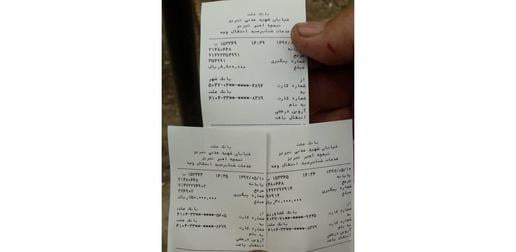
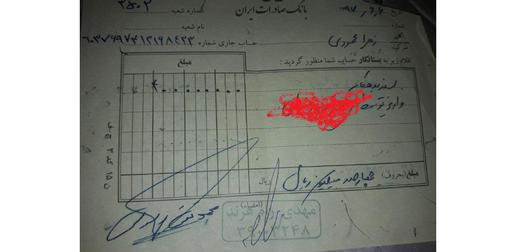
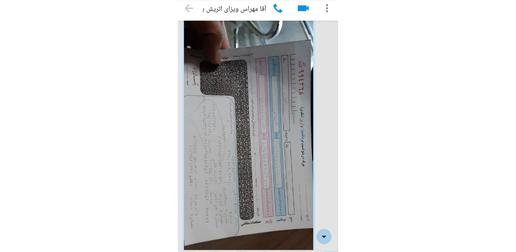

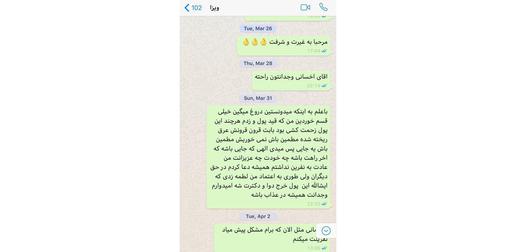
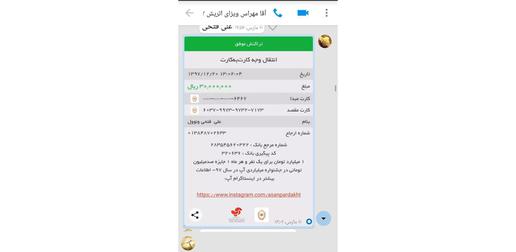




















comments